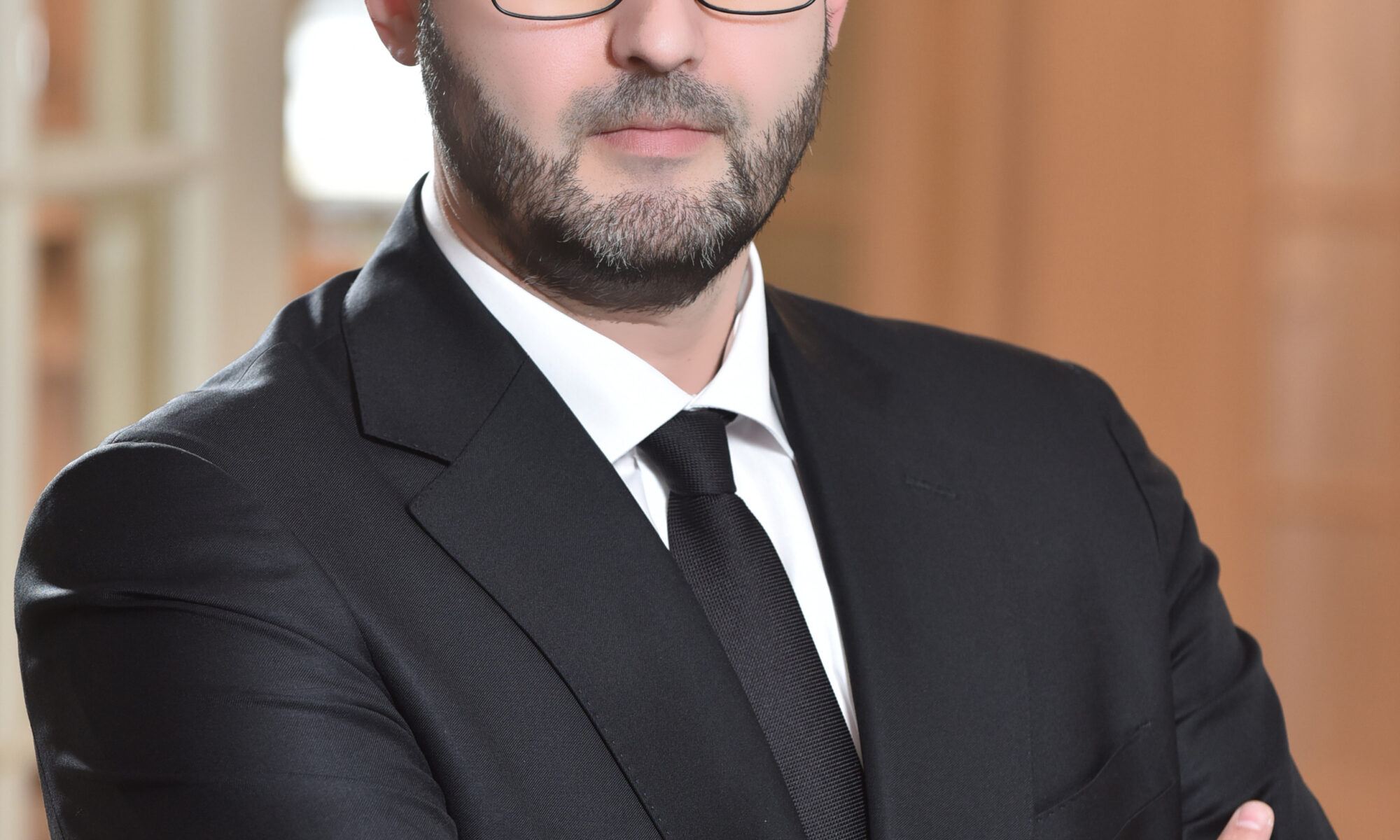Romania’s real estate market has been booming over the past years with a wealth of developments and notable price inflation. What are the factors behind its rapid expansion and how active has your real estate team been on that front?
Historically, there have been good premises for growth on Romania’s real estate market for several reasons, including:
(a) an initially very significant gap between local prices and those at EU level, now gradually closing, although depending on location and possible destination;
(b) in standard economic terms, Romania’s delay in the development of many types of office or industrial/logistical types of assets, which ensured a strong demand;
(c) for agriculture land, the gradual aggregation of small plots, modern farming efficiencies and EU subsidies have significantly increased the profitability of the business versus the original one, while
(d) for residential market, the growth was guaranteed up to a point by the natural gradual movement of Romanian revenues towards the EU average, the money sent by approx. 3.5 million Romanians working abroad, the natural gradual shift from rural to urban areas and the attachment of many Romanians to ownership (more than 93% of Romanians own the houses they live in) after the restrictions imposed during the communist regime – being tempered by demographic dynamics and location (of course, the costs of building have also increased).
In this latter respect, for instance, today some apartments in central Bucharest have prices comparable with those of properties with a similar surface in Rome or Berlin.
The Covid-19 pandemic has affected the real estate market in some respects, but variably, depending on the destination of the assets and the economic sector interested in them. The office segment has naturally been more affected.
We have traditionally focused on being strong in all segments, including in projects subject to heavy regulations from other perspectives as well, such as mining projects, harbours, industrial platforms for projects in chemistry or logistical parks. This year our real estate team has been very busy, especially with respect to projects related to industry/logistics, harbours, mining and agriculture.
Another booming sector in Romania is the tech market, how is your TMT team keeping up with developments in that space?
The TMT practice is a strategic one for us. In a growingly digitalised society, a business model can only be functional if it dedicates attention to the area of innovation and adaptation to technology.
Any law firm that wishes to shape the environment or at least to remain in the game needs and will continue to need to keep up.
Our TMT team offers significant knowledge and experience in the tech field and can draw upon the industry knowledge from our other industry teams as well (including media, financing, life sciences or retail/online business), so to deliver a truly integrated legal solution to our clients. We regularly advise numerous companies on various IT-related contracts and legal aspects, including various services or procurement contracts, liability, privacy, warranty and upgrades and IP related aspects, as well as in connection with the acquisition or sale of IT companies/assets.
Our support for technology transactions often extends beyond an initial transaction, clients benefitting from our focus on the operational landscape of the deal in contract execution, translated into solutions aimed at developing sustainable relationships that serve our clients’ objectives.
We are also one of the very few law firms in Romania with significant experience in providing assistance with respect to heavily regulated sectors related to technology, such as with respect to mass-media (including the recent assistance in the acquisition of CME’s Romanian assets by PPF) or social platforms, energy, banking & finance or healthcare (e.g. payment solutions, retail platforms, education virtual platforms, energy online offering, technology development or acquisition, related GDPR constraints, etc, as the case may be).
In essence, as a full-service legal provider, our advice spans a full range of services from regulatory advice to M&A transactions involving companies in the sector. Of course, this is an ongoing effort and we will continue to invest to further build on our leading practice.
The renewables sector, a particular specialism of your energy department, has seen plenty of investment of late. How does the market compare to the one for oil and gas in terms of size and how has your team’s existing expertise allowed it to capitalise on its recent expansion?
Energy is another sector that confirms our strategy towards a holistic approach. We have very strong experience in all segments, both in terms of sources and of levels of the chain from the source to the ultimate client.
Regarding renewables, we basically cover the full range. The sector has been affected for some years due to the significant changes made by the Government to the support schemes, but it is already growing again, also in the context of the strategy changes brought in the meantime.
The weight in terms of contribution to the overall energy outcome is still well below that of oil and gas, however the weight in terms of dynamics and new projects involving law firms is far more balanced in the context above.
We have been very busy this year with projects in this area, in addition to quite a few very complex ones related to more traditional sources, including off-shore. Our energy team, in conjunction with other industry teams (including financing, real estate, competition and data protection), had thus the opportunity to capitalize on a few recent complex mandates that included bio-ethanol production capacity, M&A, (mostly) renewables-related, matters related to the gas sector, energy off-shore, trading platforms, etc.
On a more general note, some of the traditional sources, especially gas, are expected to develop as well. For instance, in the government’s Energy Strategy for 2016-2030 published by the Ministry of Energy, the second central area identified for strategic intervention was the development of infrastructure and the securing of natural gas supply (including liquified natural gas). Romania’s energy strategy confirms that natural gas will continue to play a strong role in the energy mix for decades to come. Developing projects to diversify access to resources, as well as improving connectivity and competitiveness, is crucial for Romania’s energy security (Romania’s Strategic Guide for National Defense 2015-2019).
Romania’s oil and gas deposits could dramatically increase due to the oil and gas deposits in the Black Sea basin. Romania has one of the oldest oil and natural gas industries in the world. With over 100 years of natural gas production and over a century and a half of industrial oil extraction and refining, this industry has continuously supported Romania’s economic development.
In this respect, Romania also has large potential for LNG developments in the Black Sea. With infrastructural investments and the development of market mechanisms, Romania can become a major European LNG supplier and transport hub.
The quality of legal framework will, however, be a key element in this respect.
On the other hand, there also is a need for changes in order to meet the new global challenges posed by the technological revolution and climate change.
In this respect, the European Green Deal also puts additional pressure on the local oil and gas sector. Significant investments in innovation and modern technologies are required for the industry to maintain a relevant role in society, adapted to new environmental requirements. Natural gas can play a major role in this transition to a zero-carbon economy by 2050.
All in all, the energy sector will remain a priority for Romania’s economy and security policy.
It will also remain so for us.
In September 2019, FTSE Russell upgraded Romania’s investment status from ‘frontier’ to ‘emerging market’, how has that impacted inward investment into the country?
Indeed, FTSE Russell announced a year ago that Romania will be assigned Secondary Emerging market status effective, in conjunction with the FTSE Global Equity Index Series (GEIS) semi-annual review in September 2020.
The decision of the global index provider was taken after Romania was on the monitorization list for three years. Accordingly, FTSE Russell reclassified Romania from Frontier to Secondary Emerging market status effective as of 21 September 2020.
Given the short period of time that has passed since the promotion and the Covid-19 pandemic, it is harder to assess the impact this year.
We have seen a lot of interest in financings related to Romania, our banking and finance team being very busy this year, which may already be due, to some extent, to the increase of “strategic” trust of international financers/investors in the context above.
On a more general note, the effective promotion to the Emerging Market status can, of course, only help and is expected to allow the Romanian capital market and economy to absorb new funds in the coming years, while sending a strong signal to privately-owned and state-owned companies that they can grow significantly via the stock market.
Large investment funds will be able to invest in the Romanian companies listed on BVB, which was previously far less likely due to the constraints generated by the country’s former Frontier Market status. At the same time, it should, of course, increase the visibility of the BVB and locally listed companies.
On the flipside, Romania has become the largest economy in the Balkans in recent years. Are you noting any trends in terms of outward investment?
Romania is still a very small investor abroad even compared with its neighbours, significantly behind the Polish or Hungarian investments. Furthermore, by comparison, Romania’s FDI outward stock in 2019 accounted for 0.5% GDP, while Bulgaria’s was at 4.1% GDP, according to World Investment Report 2020 issued by the United Nations Conference on Trade and Development (UNCTAD).
Local investors seem to prefer focusing on the local market (for a variety of reasons that we can discuss on another occasion).
As revealed by UNCTAD’s latest Global Investment Trends Monitor (released on 27 October), global foreign direct investment flows fell by 49% in the first half of 2020 compared to 2019, due to the economic fallout from Covid-19, showing a decline that cut across all major forms of FDI, with a projection to plunge by 40% for the entire 2020. Developing economies saw a much bigger fall (-49%) than developed economies (-17%), reflecting their more limited capacity to roll out economic support packages.
Speaking of trends, I believe that, at least in 2021, Romania will go with the global flow of foreign direct investment, which will continue to be under severe pressure due to the COVID-19 pandemic.
Cooperation will be quite important, as sustainable development depends on a global policy climate that remains conducive to cross-border investment, but this will depend on the ability to take advantage of the new industrial revolution and to overcome growing economic nationalism.
I also believe that Romania’s main chances to increase its investments abroad relatively quickly mainly depend on (a) energy-related investments; (ii) IT/tech/online and (iii) specialized goods.
The IMF recently projected that the overall EU economy will protract by 7% in 2020 though the CNP estimates that the Romania’s GDP will fall by only 3.9%. Why has Romania fared better with the economic impacts of Covid-19 than other European nations?
The World Bank classified Romania as a high-income country for the first time, based on the 2019 data (per capita income of $12,630). This is an important development for investment rating decisions and for accession negotiations to the Organisation for Economic Co-operation and Development.
Regarding the pandemic impact, the figures varied a bit, especially in terms of forecasts. With the benefit of being already towards the end of the year, according to the European Commission’s 2020 autumn forecast, real GDP is projected to contract by around 5¼% in 2020 and to rebound by around 3¼% in 2021 and 3¾% in 2022, when it will recoup its pre-crisis level.
However, all calculations and projections show indeed that Romania has fared better than the EU in terms of such percentages and will have a higher percentage growth over the next years.
It is fair to say that part of the difference in 2020 is accounted for by the pro-cyclical economic policies of the past few years, which generated a significant increase in average salaries, especially in the public sector, which in turn, have fuelled a stronger domestic demand this year (and which also had negative effects, for instance, on the costs structure and commercial deficits).
On the other hand, Romania has a number of advantages that should allow the country to continue to firmly move towards the EU average in terms of income, with the associated benefits for businesses active in the country.
These include aspects such as (a) geographical location, also in the context of the anticipated adjustments to a number of logistical and production chains worldwide, (b) stronger weight of industrial base than in the EU, (c) growing access to EU funds, in particular the package envisaged for dealing with the post-pandemic consequences that offers numerous opportunities, (d) still relevantly cheaper work force than in many EU countries; (e) very good positioning in terms of energy reserves and potential, (f) rapidly growing contribution of the IT sector to the GDP or the (g) significant potential of synergies related to lack or insufficient modernization of a number of activities, including at the level of public administration.
Romania’s economy is already mainly centered on the services sector, which represents more than 56% of the GDP and employs nearly 48% of the nation’s workforce. The technology sector has also seen a very solid growth in recent years, due to the growing basis of a highly qualified workforce whose cost is lower than the European average and Romania’s ITC sector currently exceeds 6% of GDP.
Romania held its legislative elections on 06th December 2020. Do you anticipate that this might interfere with Romania’s recovery from the pandemic?
While any individual may have her/his opinion and I personally encourage everyone to be an active and responsible citizen in the community, law firms are not good at politics and are generally expected by their clients to refrain from taking political positions in such capacity.
Accordingly, I would not comment on the elections as such. However, I would like to emphasise that we do expect predictability, transparency and solid dialogue and analysis from authorities when taking decisions and we will continue to assist clients towards preserving or obtaining that, as the case may be.
As mentioned, the pandemic has important consequences worldwide, but it also presents numerous opportunities in the current context.
I am quite optimistic that Romania can progress well over the next years and will continue to attract investments and talent.
The Romanian legal market is home to many more international firms than other Balkan states such as Greece, Bulgaria, Slovenia, Croatia and Serbia. What do you believe has drawn these firms to Romania and how do you ensure that your firm is in a position to compete with international firm when it comes to winning cross-border mandates?
I would say that Romania’s market is closer to the Hungarian, Czech and Polish markets. It is true that I know them better than the other markets mentioned above.
Law firms closely follow every movement of the economy, being one of the sectors directly impacted by the uptrend or downturn of the country. Romania has generally been an attractive target for foreign investment, being the second largest country in Central and Eastern Europe and the largest in South-Eastern Europe in terms of size and population, whose economy has been for some time among the fastest growing in the EU. Naturally, all these factors have enticed certain international law firms to enter this market, especially after 2000.
On the other hand, in terms of actual presence through local offices, not many law firms have set up office in Romania, most international law firms preferring to collaborate with local law firms on ad-hoc projects, as opposed to maintaining a permanent presence.
As far as we are concerned, we appreciate working with international law firms, many of our lawyers started their carrier in one such firm and we have been an integral part of one for years and still cooperate a lot to this day. Generally, working with international law firms is an opportunity to expand knowledge and experience and remain connected to global trends.
Regarding the international law firms with local presence at present in Romania, we consider that there is room for everyone in the market that can show the right skills and the right drive. We strongly believe that we are second to none in both respects and our role in many complex projects over the past years involving all types of law firms confirms our strength.
Winning cross-border mandates is a marathon, as opposed to a sprint, and once you get recognized as a (constantly) very strong player, you are regularly invited to competitions.
Our main advantages in this respect are those mentioned in our description at the beginning. In addition to being a very strong and balanced team, it certainly helps us that we combine people who worked within or with international law firms for a good part of their professional carrier with the flexibility and synergies that a one-country focus allows.
While we see more competition and pressure on fees, our team has continued to attract significant cross-border mandates, both in terms of deal value and visibility, including during the Covid crisis.
While a (rather) young, but very experienced and solid team, Bondoc si Asociatii is eventually the sum of its members’ experiences.
As such, we are confident that despite the uncertainties inherent to the current global and European context, we will adapt and overcome whatever the economic climate will throw at us, including by further expanding our practices that are high demand in a context of an economic crisis and global shift in economy.
This means not only paying attention to opportunities, but constantly trying to create new ones.




